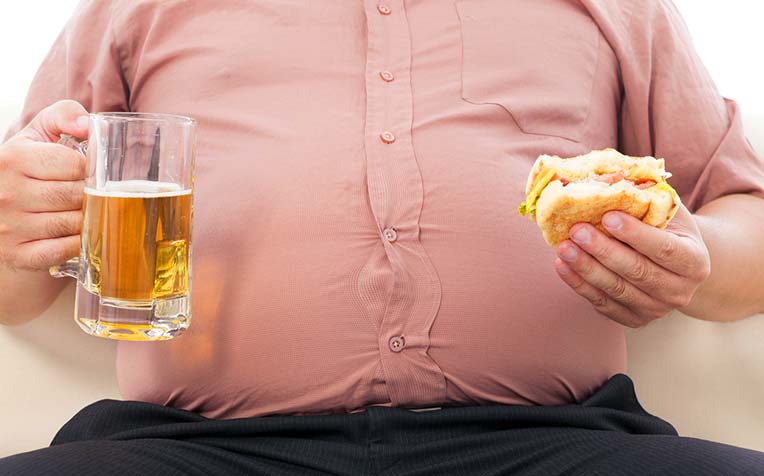
Being overweight is a warning sign that shouldn't be taken lightly.
A person is considered overweight when he or she has a waist-to-hip ratio of more than 0.80 for women and 0.85 for men. But more than just about having to wear larger-sized clothes, being overweight indicates the presence of excessive fat around the waist or belly fat – which is associated with various health conditions, including high blood pressure, abnormal cholesterol and triglyceride levels, and insulin resistance.
Known as metabolic syndrome, being overweight is associated with the development of cardiovascular disease and type 2 diabetes, said Dr Ng Lee Beng, Consultant, Department of Family Medicine and Continuing Care, Singapore General Hospital (SGH), a member of the SingHealth group.
She points to one big culprit: the modern diet.
“The modern diet is basically food that is eaten fast and digested fast because they have little or no fibre. Food like white rice, white bread and noodles cause sugar surges, overworking the pancreas to produce insulin to remove the sugar from the blood. Do this often enough and your pancreas will start failing,” Dr Ng said.
How being overweight affects the pancreas
Insulin, a hormone made by the pancreas, brings sugar into body cells to be used as energy, and helps store excess sugar in the tissues and liver for use later.
In people who are overweight, the pancreas has to work harder to produce more insulin than what is normally needed because their bodies cannot “sense the insulin” properly. This stress on the pancreas causes pancreatic cell fatigue and damage, increasing the chance of developing type 2 diabetes.
“The initially high insulin level in someone with insulin resistance signals to the brain that he is still hungry, though he might have just consumed a big amount of refined carbohydrate,” said Dr Ng. When that happens, the person feels perpetually hungry and continues to eat. Excessive eating – resulting in an increased sugar load entering the blood stream – prompts more insulin to be produced to normalise the body’s sugar balance.
This perpetuates the vicious cycle of more eating, more insulin being produced, excess sugar being stored as fat, continued fatigue and hunger, and even more eating. The pancreas experiences stress, then fatigue, and finally damage.
“You are killing your insulin factory,” said Dr Ng, pointing out that when 80 per cent of the pancreas is destroyed, the body’s sugar levels go out of control. “That’s the day diabetes will be diagnosed.”
How being overweight affects the liver
In addition, excess sugar turns into fat, which is deposited in and around organs like the liver. “Fat in these areas doesn’t just sit there and do nothing. It causes inflammation, and this literally leads to cells popping and dying,” she said.
Inflammation of the liver from fat, can lead to scarring, which increases the risk of developing liver cancer. Persistent and prolonged scarring of the liver can lead eventually to liver cirrhosis and cancer.
How to lose weight safely and effectively
The oft-repeated mantra to exercise regularly and follow a healthy diet is still the most effective step towards losing weight. White rice, refined carbohydrate, sugar-rich food and beverages are no-no’s. Instead, load up on food that digests and turns to sugar slowly, such as whole fruit and vegetables – not the juice – wholegrains like brown rice and oats, and wholemeal products.
“Juicing is not recommended. Fruit juice, with or without sugar added, is mainly fruit sugar water without fibre. Even blended fruit juice has its fibre partially broken down, and will be digested more rapidly and cause higher sugar surges than real fruit,” said Dr Ng about the common misconception that fruit juice is healthy.
Food packaged with fibre requires biting and chewing, which slows down the eating process, and requires digestion and so stays in the stomach longer.
“It makes you feel full longer, so you eat less. The sugar doesn’t enter the blood stream as a sugar surge, which stresses the pancreas to produce high levels of insulin. For the average busy Singaporean, a good start is to halve your rice, bread or noodles, double your vegetables, and walk briskly at least three times a week,” Dr Ng advises.
Ref: M19
Contributed by


















 Get it on Google Play
Get it on Google Play